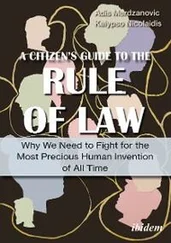As for the birdshit, during World War I its value plunged as newer explosives didn’t require nitrogen and a method of synthesizing ammonia was developed, making the towering cliffs of guano no longer worth fighting over. Chile’s economy, totally dependent on poop exports, shuddered. The cliffs of dung have returned to their rightful place among the planet’s least valuable and mostly smelly places.
As a bold gesture of reconciliation, in 2007 Chile returned 3,800 books borrowed from Peru’s national library more than 125 years before. Peru graciously waived the late fees.
SIX.
THE U.S. INVASION OF RUSSIA: 1918
The United States invaded Russia.
Yes, that is correct. The United States put boots on the ground in Siberian Russia in 1918 in an attempt to overthrow Lenin and his Communist pioneers at the dawn of the Soviet Union. It was a bold, visionary stroke in identifying a future enemy and striking at it in its cradle, the kind of preemptive strategic action rarely attempted by lumbering democracies such as America, for reasons that will become obvious.
This allied adventure, doomed from its inception, had to overcome its lack of an actual plan (not to mention that World War I was still happening). The only actual planning made for the invasion of Russia, the largest country on earth, was a short memo from President Wilson to Major General William S. Graves, who Wilson picked to lead the U.S. troops assigned to this ill-fated caper. Wilson, a former college professor, titled his invasion report the “Aide-Memoire”; unduly influenced by the numerous vague freshman philosophy papers he had graded, Wilson copied their style. Politicians talk theory, generals talk logistics, and Wilson’s invasion memo lacked both. Its main features were its brevity and total paucity of detail. Wilson did not seem to have thought through the practical implications of such goals as “Overthrow the Communists,” in a country five thousand miles wide, armed with a few brigades of doughboys and a handful of uncontrollable allies.
The invasion of Siberia wounded the Communists to the extent that they managed to rule for only another eighty years.
Woodrow Wilson— bespectacled and idealistic president of the United States. The former college professor led the United States into World War I a few months after getting reelected by promising to stay out of the war. But once you get an academic fighting mad, watch out. Even a war that cost the United States more than 100,000 killed didn’t diminish Woody’s fighting mojo: when he saw the chance to take on the Commies, he dashed off a memo and put the gloves on.
Skinny — He was so arrogant even the French hated him.
Props — He took on the Commies when Senator Joseph McCarthy was still in grade school.
Pros — Had a fourteen-point plan for how to run the world.
Cons — It was four more points than God’s plan.
Vladimir Lenin— with the invaluable assistance of Kaiser Wilhelm II, he led his Bolsheviks in seizing power in Russia after killing the tsar and his family of threatening young children.
Skinny — Believed in a worldwide workers’ revolution in which no one owned anything but were expected to work like hell so that everyone owned everything, or something like that.
Props — Convinced the Kaiser to send him back to Russia to start a revolution even though he hated the Germans and the Germans hated him.
Pros — Kick-started a worldwide revolution featuring a catchy theme song, the “Internationale.”
Cons — Formed the Soviet Union.
Admiral Alexander Kolchak— caught up in the excitement of being headquartered in the city of Omsk, in Western Siberia, 1,500 miles from Moscow, the former admiral promoted himself Supreme Ruler of Russia.
Skinny — He looked good in his admiral’s uniform and had the support of the Western countries.
Props — Stole the tsar’s entire gold reserve.
Pros — Was devoted to destroying the Bolsheviks.
Cons — Naval tactics don’t work well on land.
Major General William Graves— General Graves, having not exactly distinguished himself by defending the San Francisco front during World War I, received the unenviable task of overthrowing the Russian government with a pint-sized infantry division.
Skinny — His final orders from the secretary of war at a train station in Kansas City were “God bless you and good-bye.”
Props — In Russia he quickly realized his troops were better off fighting hangovers than Bolsheviks.
Pros — Was not fooled into believing the Siberian adventure was going to turn out well.
Cons — Read Wilson’s ridiculous memo, figured the turgid affair would end badly but dutifully went anyway.
Wars make strange bedfellows, and World War I was no different. The United States, Britain, and France, along with a bunch of small countries that always fight alongside the major allies but no one really pays attention to, joined together against the Kaiser’s Germany and Austria. The tsar wasn’t really a democratic kind of guy, but because of a series of interlocking treaties that no one really understood, the Russians somehow ended up on the French/British team against the Germans/Austrians/Turks for the first big show of the very bloody twentieth century.
After millions of casualties suffered by the inept Russian armies, the huddled masses back home in Russia revolted and in early 1917 overthrew the tsar, replacing him with the provisional government. This was welcome news for the Allies as the new government featured a much more democratic sounding name than the Kingdom of Russia.
But Russia was weakening. Russian democrats, landless serfs mostly, had finally grown weary of the centuries-long role of cannon fodder for the grandiosely inept Russian officers. The Russian peasant cannon fodder, however, were highly valued by the French, British, and Americans because the vast Russian army tied down equally large numbers of German troops on the eastern front. The Allies feared that if the massive number of German serf-fighting troops became free to hit the western front, they would probably roll right up to the English Channel in about six weeks. The French believed, of course, that this could never, ever happen.
The situation in Russia took a horrifyingly dramatic turn for the Allies in late 1917 when the Bolsheviks, led by Lenin and Trotsky, took over the country in a neatly executed coup (disguised cleverly as a revolution), pushing aside the provisional government, proving that if your goal is to establish a new government, and you call it the provisional government, it probably will be.
For the Allies, having a bunch of Bolsheviks as their new allies in charge of Russia was bad enough. But in February 1918, when they declared they would stop fighting the imperialistic, capitalistic war against Germany and that their soldiers would go home, the Allies suffered the blow of peace heavily. The removal of Russia meant the potential transfer of about seventy German divisions from the eastern to western theater of war.
The Bolsheviks eagerly signed the treaty of Brest Litovsk on March 3, 1918, handing themselves a complete and utter defeat. This happy event for the Kaiser cleared the way for a vast German spring offensive designed to push the beleaguered Allies beyond the breaking point. The Allies were desperate to get the Russians back in the game. If this meant changing its government one more time, so be it. And if changing the government of Russia meant ending the experiment in communism, whose stated goal was to eradicate capitalism and destroy all the Allied governments, well, that’s why bonuses are handed out.
Читать дальше












